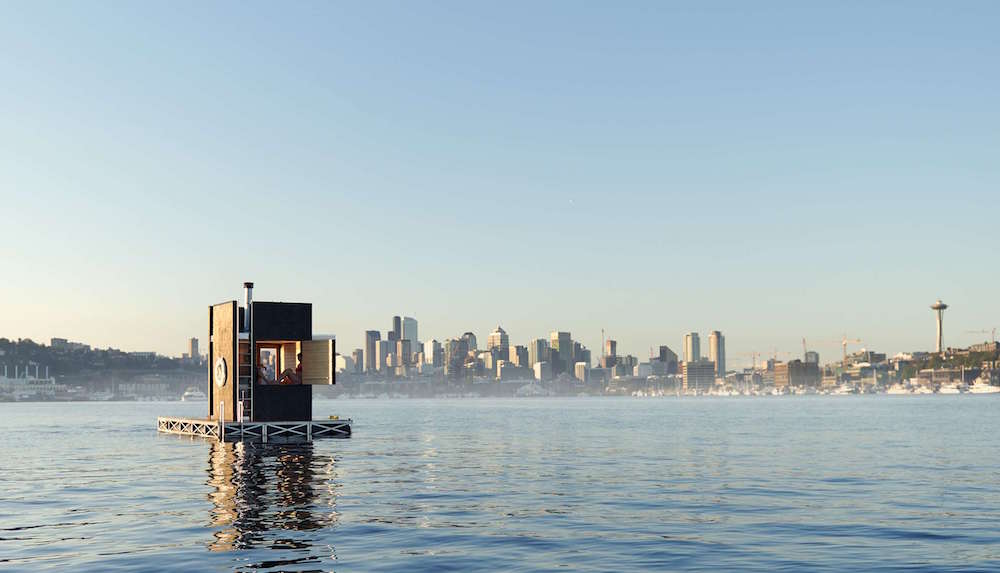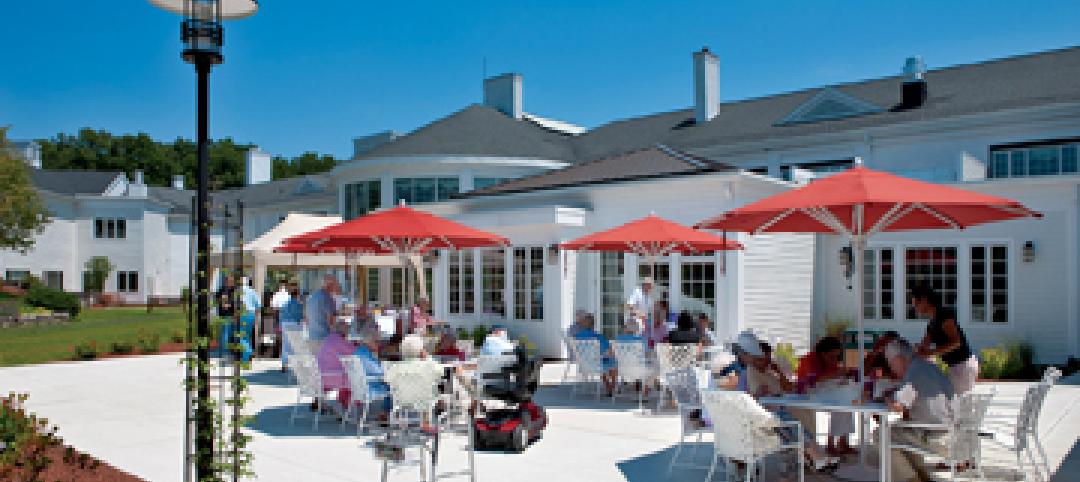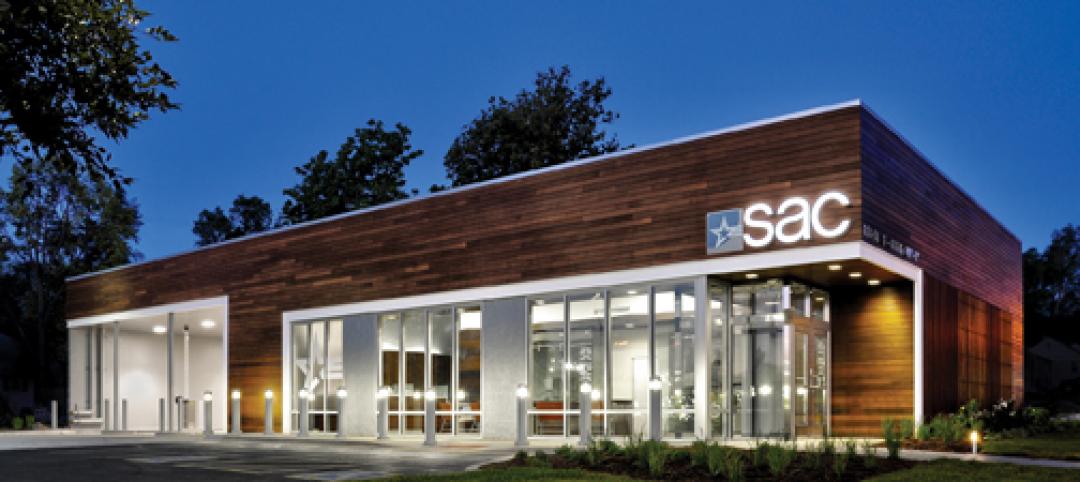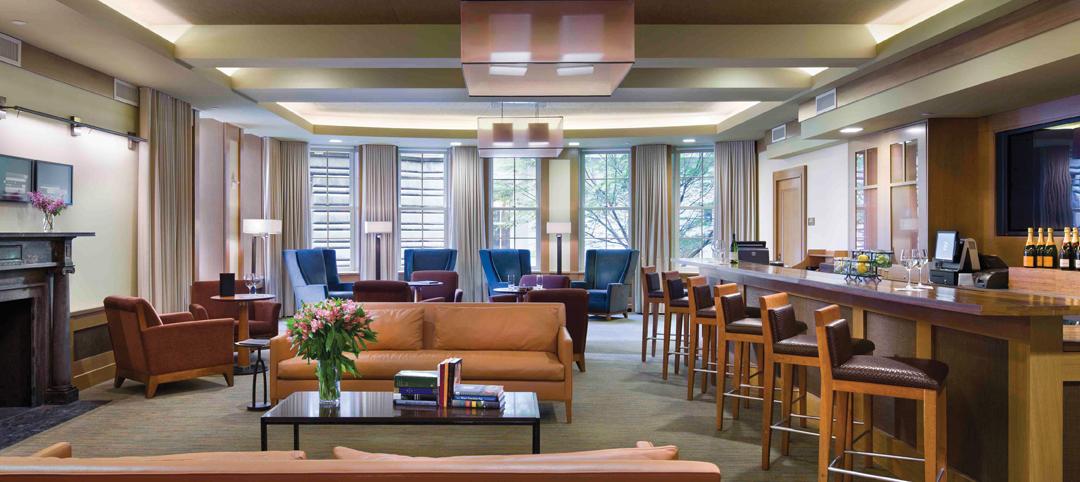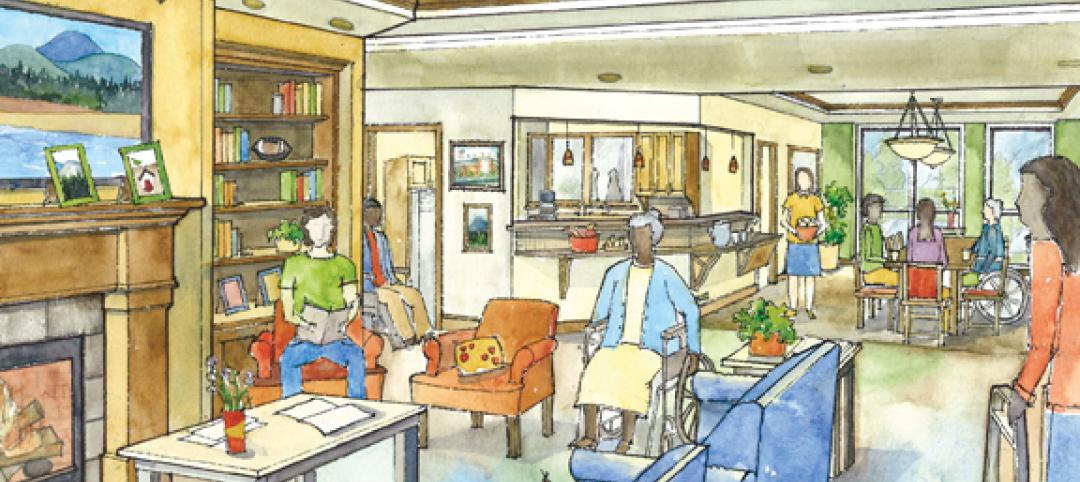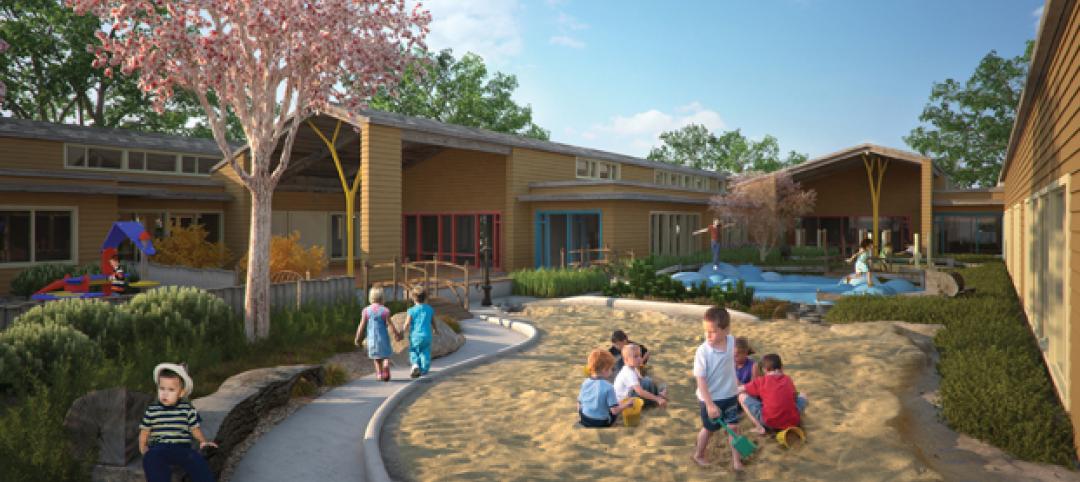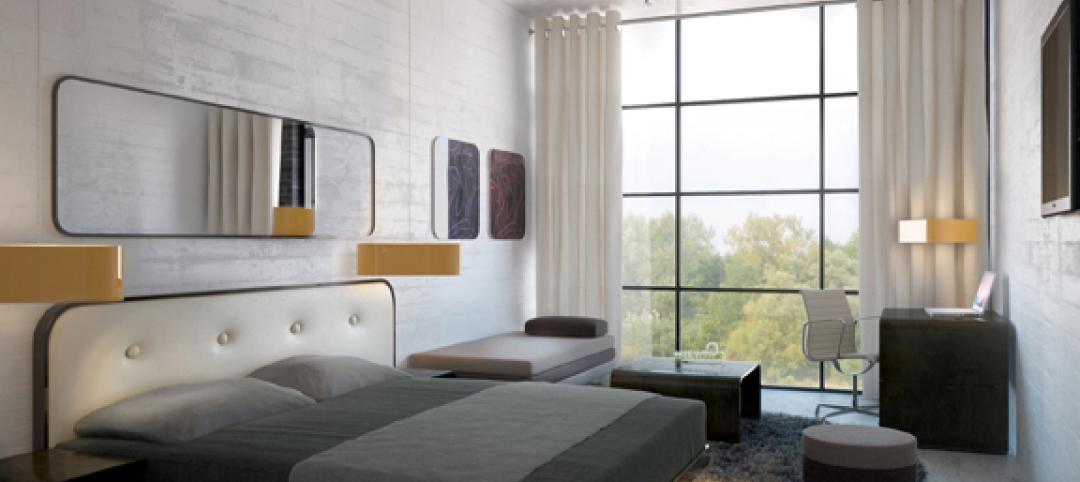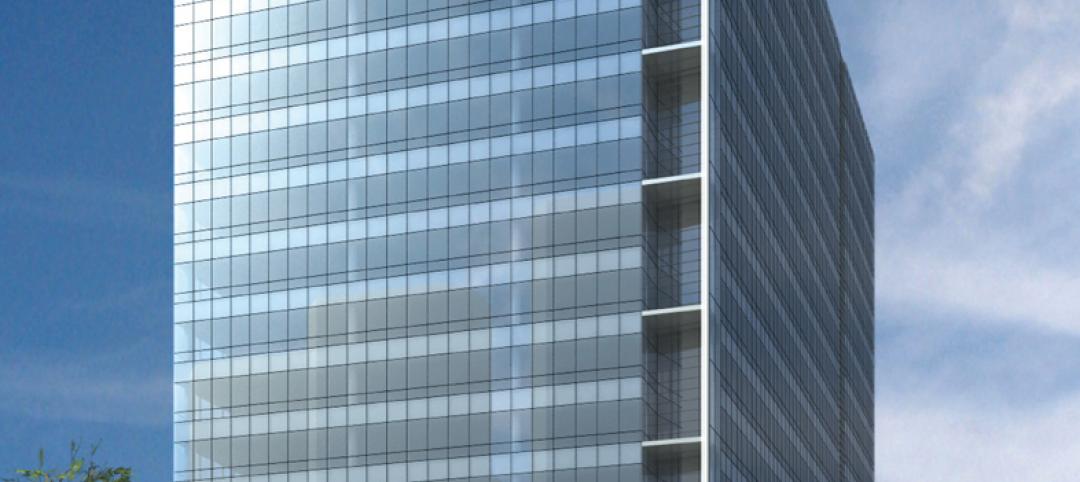The American Institute of Architects (AIA) selected nine recipients of the 2016 Small Project Awards.
Now in its 13th year, the AIA Small Project Awards Program recognizes the work of small-project practitioners and promotes small-project design.
Award recipients are categorized into two groups. Category 1 is small project construction, objects, works of environmental art or architectural design elements up to $150,000 in construction cost. Category 2 is small project construction up to $1.5 million in construction cost.
“With construction budgets regularly running into the tens and hundreds of millions of dollars, it’s important to emphasize the impact smaller projects can have,” said Jury Chair, Marika Snider, AIA. “As architects we strive to provide clients with more than just buildings, but solutions to improve life – these projects highlight this notion.”
The jury for the 2016 Small Project Awards includes: Marika Snider, AIA (Chair), Snider Architecture; Will Bruder, FAIA, Will Bruder Architects; Mira Locher, FAIA, Kajika Architecture; Elizabeth Ranieri, FAIA, Kuth Ranieri and Jonathan Tate, Office Jonathan Tate.
(Click images to enlarge)
Category 1
 Photo: Ed Massery, courtesy AIA.
Photo: Ed Massery, courtesy AIA.
Carnegie Library of Pittsburgh Studio Hive | Pittsburgh | GBBN Architects
The Studio Hive is part of the Teen Zone in the East Liberty Branch of the Carnegie Library of Pittsburgh. Made of wood and sound absorbent industrial felt, its creation has contributed to a 350% increase in attendance at the library’s teen programs and events. The design team developed a 3D digital model of the hive, which allowed designers to tune the form and refine it to minimize material waste. The connection to both the remaining library and the street provides teens with a sense of their social context and environment while they occupy a space that is uniquely personal.
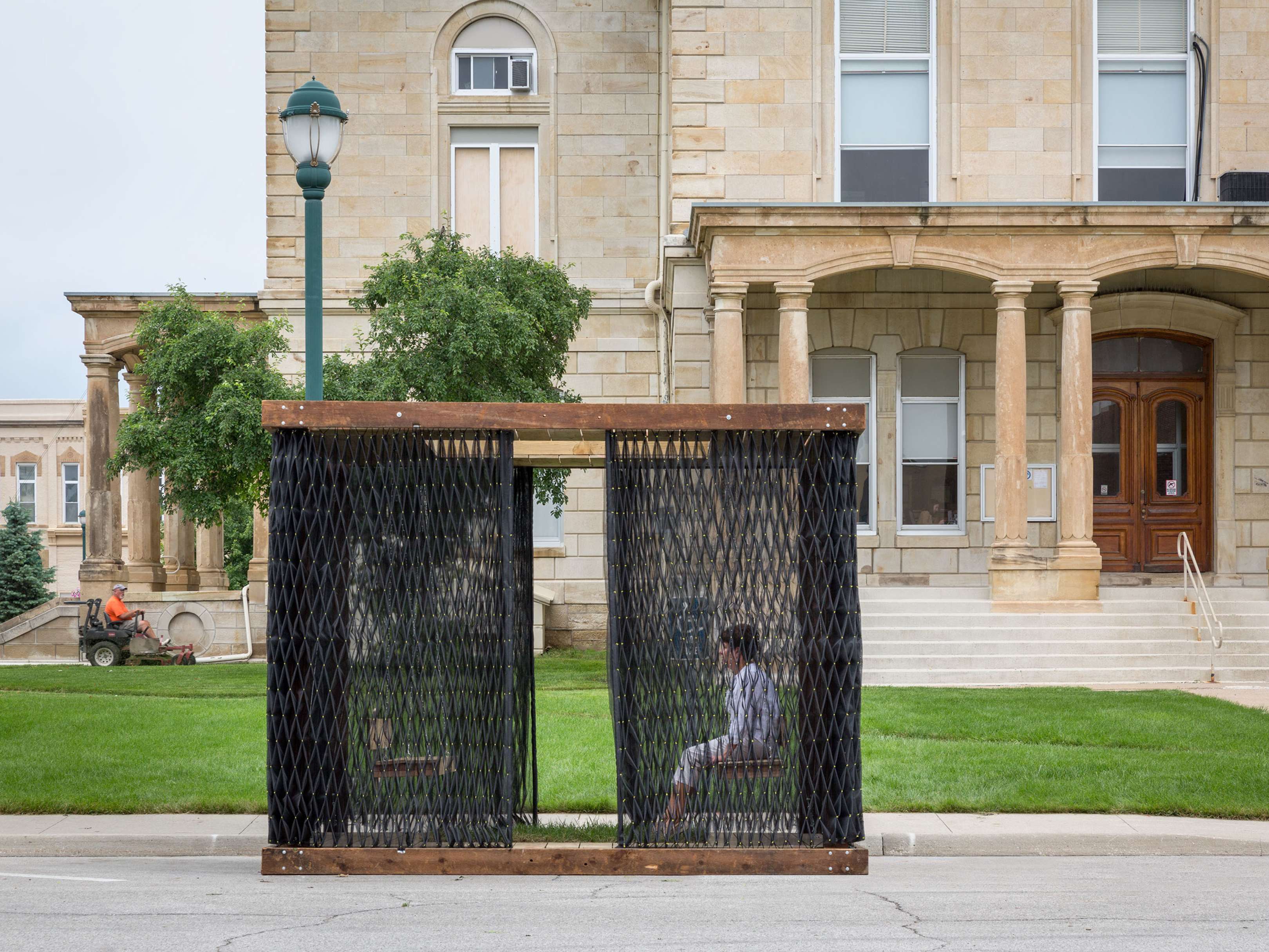 Photo: Paul Crosby, courtesy AIA.
Photo: Paul Crosby, courtesy AIA.
Deployable Smocked Porch | Winterset, Iowa | substance architecture
A simple wooden frame defines the small space and supports two porch swings. The smocked screening creates curtains that allow access and provide shade and enclosure. A rectangular opening in the roof allows a shaft of daylight to enter the space. This opening is echoed in the small turf area cut into the floor. The project was designed and constructed adjacent to the courthouse square in Winterset as a pro bono effort to support The Iowa Preservation Alliance. The wood was salvaged from a demolished home, and the labor to sew, fabricate, and construct the space were provided by the design team. As a result, the budget for the project was $900.
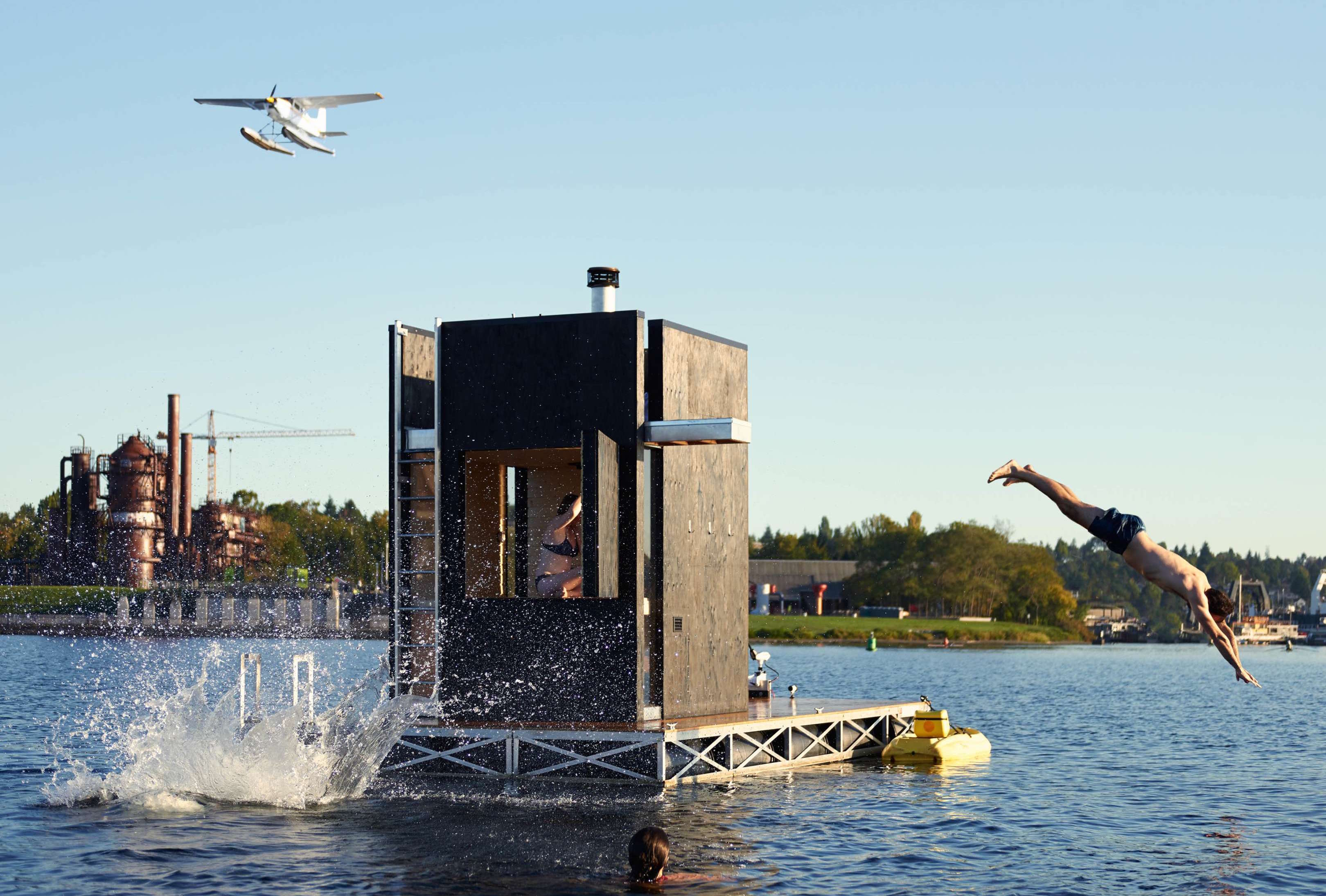 Photo: Kevin Scott, courtesy AIA.
Photo: Kevin Scott, courtesy AIA.
wa_sauna | Seattle | goCstudio
This floating sauna, funded through a crowdfunding campaign, functions as a boat that can be moored at a marina or private property and taken out on the open water. The interior is heated by a wood burning stove. As a mobile piece of architecture, wa_sauna is able to engage with people living aboard boats and houseboats as well as the large community of boaters, kayakers, paddle boarders and rowers. It uses a pre-manufactured aluminum frame and floatation system for the deck.
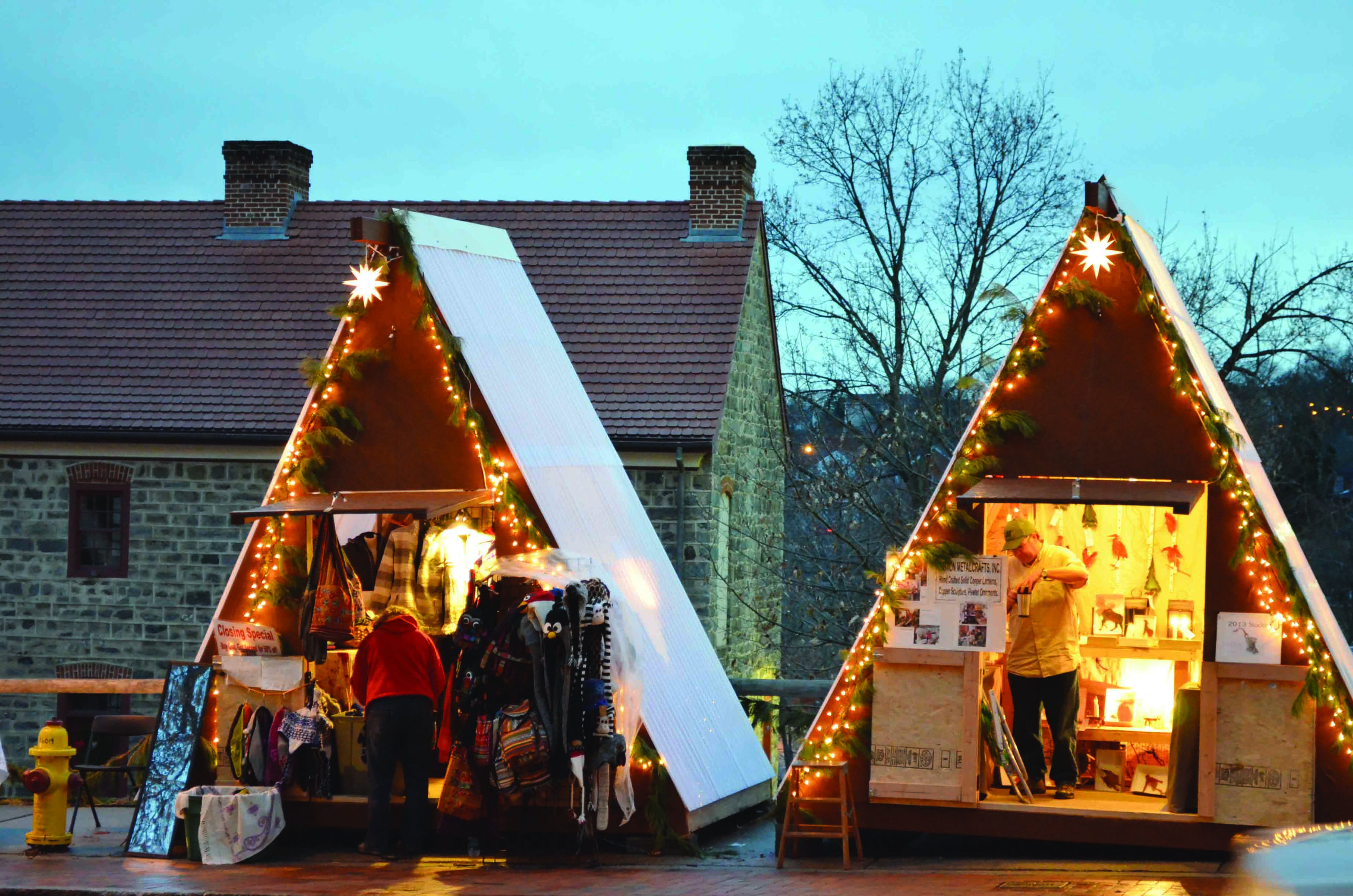 Photo: Nik Nikolov, courtesy AIA.
Photo: Nik Nikolov, courtesy AIA.
Weihnacht Huts | Bethlehem, Pennsylvania | NAD
This pro-bono design is for 35 craft exhibit huts for an authentic German Weihnachtsmarkt (open-air Christmas market). The huts feature a steeply-sloped roof designed for snowfall and a ridge line borrowed from traditional Moravian vernacular. With a limited budget for materials ($286 per unit), paired with the necessity for the structures to be taken apart and stored every year, the deck, walls, and roof panels are constructed as single units to be taken apart, transported, and stored flat with ease. The poly-carbonate roof is not only easy to dissemble, but also allows for a large amount of light and warmth inside during the day. During the night the huts are illuminated from within to add to the Christmas atmosphere of Bethlehem’s historic district.
Category 2
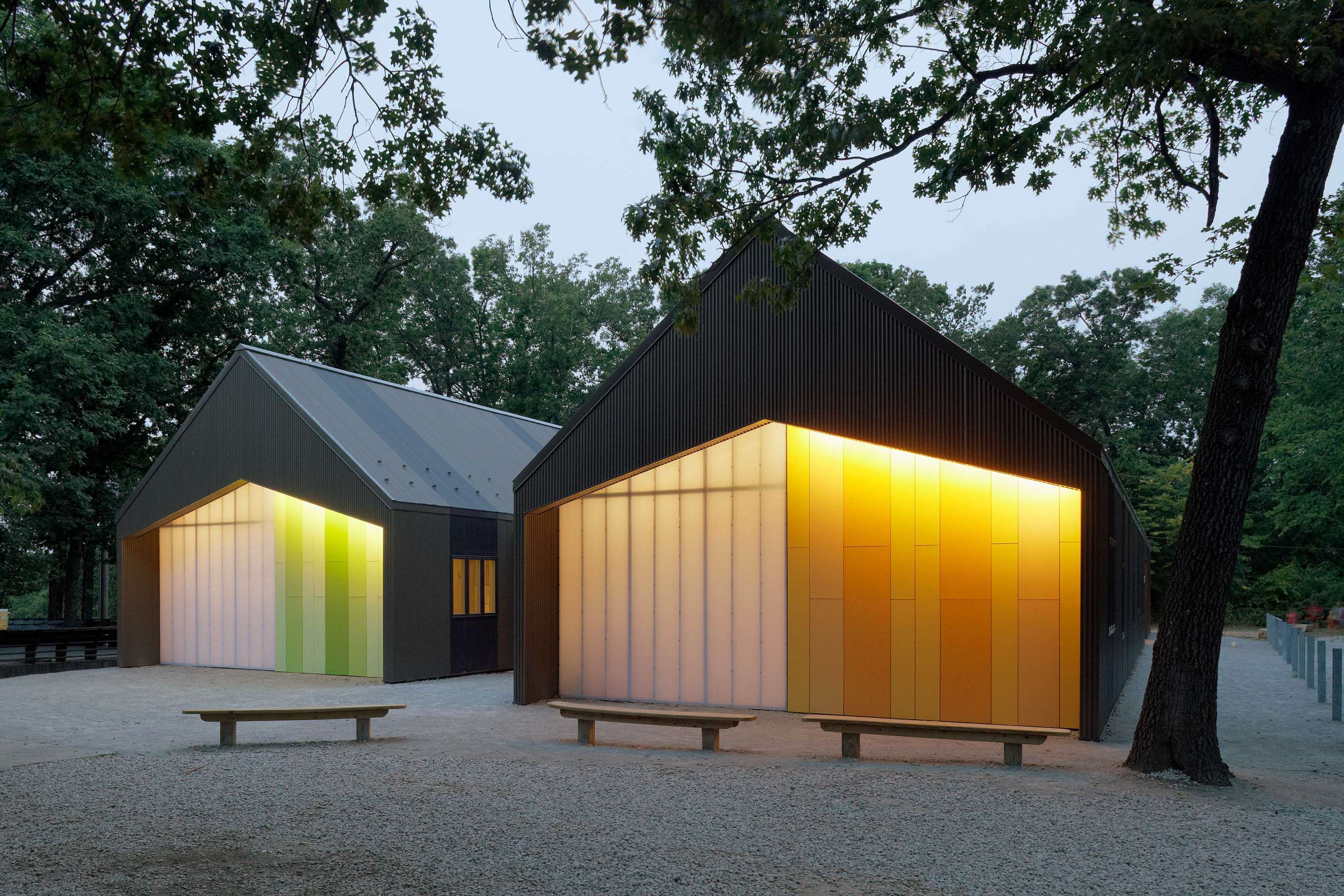 Photo: Mike Sinclair, courtesy AIA.
Photo: Mike Sinclair, courtesy AIA.
Girl Scouts Camp Prairie Schooner | Kansas City, Missouri | el dorado inc.
Camp Prairie Schooner features a dining hall, five permanent units, two buildings for troop use, a 40-foot rappel tower, an archery range, a swimming pool and a zipline. The load bearing walls of the structures are constructed of 2x6 wood studs that support a series of common & scissor trusses. The envelope is clad with corrugated metal panels, complementing the wood and aluminum clad windows and skylights. The end of the bunk houses are a combination of fluted polycarbonate glazing and painted concrete board over a rain screen system. All mechanical systems are concealed within the trusses. The pendant lights are custom fixtures designed and built by a former girl scout.
 Photo: Johnsen Schmaling Architects, courtesy AIA.
Photo: Johnsen Schmaling Architects, courtesy AIA.
Linear Cabin | Alma Lake, Wisconsin | Johnsen Schmaling Architects
The Linear Cabin is a small family retreat, its low-slung body sitting in a small clearing in Wisconsin’s North Woods. The building consists of three identically sized, nearly opaque boxes tied together with a continuous thin roof plane. The voids between the boxes allow for unobstructed views through the building from the outside, and into the sylvan landscape from within. The interior is clad in knotty pine, and is tempered by its crisply detailed joints and the simple lines of the lacquered millwork throughout. The cabin is wrapped in blackened cedar, with its darkness matching the weathered monochrome of traditional Wisconsin cabins.
 Photo: Will Crocker, courtesy AIA.
Photo: Will Crocker, courtesy AIA.
St. Pius Chapel & Prayer Garden | New Orleans | Eskew+Dumez+Ripple
The new chapel was designed as a quiet refuge and intimate sanctuary for reflection and contemplation. The sanctuary, which complements the modernist character of the adjacent church (circa 1963), is small but tall, keeping occupants close while inspiring reverence. Beyond a few pieces of furniture and religious items, the space’s power and purpose is enhanced by its very simplicity allowing occupants worship in quiet and contemplative solitude, without distraction.
 Photo: Mitch Tobias, courtesy AIA.
Photo: Mitch Tobias, courtesy AIA.
Studio Dental | San Francisco | Montalba Architects, Inc.
The goal was to create a spacious interior while packing Studio Dental’s required program for its mobile unit. The 26-foot-long trailer with 230 interior sf features a waiting area, sterilization room, and two operatories. The sterilization room is hidden behind millwork panels that wrap around to form the patient waiting bench. A centralized, double-sided millwork panel houses equipment for both operatories and gestures up to 11-foot-plus ceilings with translucent sculpted skylights. Materials include natural wood millwork, bright-white surfaces, and a custom perforation pattern.
 Photo: Iwan Baan, courtesy AIA.
Photo: Iwan Baan, courtesy AIA.
Village Health Works Staff Housing | Bujumbura Burundi | Louise Braverman, Architect
Embedded in the mountainside of an off-the-grid rural village in Burundi, this 18-bed staff housing is a bridge between East African elemental aesthetics and inventive sustainability. The 6,000-sf dormitory captures scenic mountain views. The same design aspects that establish its visual presence, such as airflow enhancing porches, also advance its sustainability.
Related Stories
| Mar 11, 2011
Renovation energizes retirement community in Massachusetts
The 12-year-old Edgewood Retirement Community in Andover, Mass., underwent a major 40,000-sf expansion and renovation that added 60 patient care beds in the long-term care unit, a new 17,000-sf, 40-bed cognitive impairment unit, and an 80-seat informal dining bistro.
| Mar 11, 2011
Research facility added to Texas Medical Center
Situated on the Texas Medical Center’s North Campus in Houston, the new Methodist Hospital Research Institute is a 12-story, 440,000-sf facility dedicated to translational research. Designed by New York City-based Kohn Pedersen Fox, with healthcare, science, and technology firm WHR Architects, Houston, the building has open, flexible labs, offices, and amenities for use by 90 principal investigators and 800 post-doc trainees and staff.
| Mar 11, 2011
Blockbuster remodel transforms Omaha video store into a bank
A former Hollywood Video store in Omaha, Neb., was renovated and repurposed as the SAC Federal Credit Union, Ames Branch. Architects at Leo A Daly transformed the outdated 5,000-sf retail space into a modern facility by wrapping the exterior in poplar siding and adding a new glass storefront that floods the interior with natural light.
| Mar 11, 2011
Historic McKim Mead White facility restored at Columbia University
Faculty House, a 1923 McKim Mead White building on Columbia University’s East Campus, could no longer support the school’s needs, so the historic 38,000-sf building was transformed into a modern faculty dining room, graduate student meeting center, and event space for visiting lecturers, large banquets, and alumni organizations.
| Mar 11, 2011
Mixed-income retirement community in Maryland based on holistic care
The Green House Residences at Stadium Place in Waverly, Md., is a five-story, 40,600-sf, mixed-income retirement community based on a holistic continuum of care concept developed by Dr. Bill Thomas. Each of the four residential floors houses a self-contained home for 12 residents that includes 12 bedrooms/baths organized around a common living/social area called the “hearth,” which includes a kitchen, living room with fireplace, and dining area.
| Mar 11, 2011
Oregon childhood center designed at child-friendly scale
Design of the Early Childhood Center at Mt. Hood Community College in Gresham, Ore., focused on a achieving a child-friendly scale and providing outdoor learning environments.
| Mar 11, 2011
Guests can check out hotel’s urban loft design, music selection
MODO, Advaya Hospitality’s affordable new lifestyle hotel brand, will have an urban Bauhaus loft design and target design-, music-, and tech-savvy guest who will have access to thousands of tracks in vinyl, CD, and MP3 formats through a partnership with Downtown Music. Guest can create their own playlists, and each guest room will feature iPod docks and large flat-screen TVs.
| Mar 11, 2011
Construction of helicopter hangars in South Carolina gets off the ground
Construction is under way on a $26 million aviation support facility for South Carolina National Guard helicopters. Hendrick Construction, the project’s Charlotte, N.C.-based GC, is building the 111,000-sf Donaldson Hangar facility on the 30-acre South Carolina Technology & Aviation Center, Greenville.
| Mar 11, 2011
Texas A&M mixed-use community will focus on green living
HOK, Realty Appreciation, and Texas A&M University are working on the Urban Living Laboratory, a 1.2-million-sf mixed-use project owned by the university. The five-phase, live-work-play project will include offices, retail, multifamily apartments, and two hotels.
| Mar 11, 2011
Chicago office building will serve tenants and historic church
The Alter Group is partnering with White Oak Realty Partners to develop a 490,000-sf high-performance office building in Chicago’s West Loop. The tower will be located on land owned by Old St. Patrick’s Church (a neighborhood landmark that survived the Chicago Fire of 1871) that’s currently being used as a parking lot.


